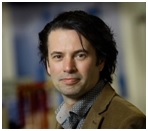The photovoltaic revolution is only getting started
Prof. Dr. Arno Smets, Photovoltaic Materials and Device, Department of Electrical Sustainable Energy, Delft University of Technology.
The fast advances in photovoltaic (PV) solar energy are mind blowing. Global cumulative installed nominal photovoltaic power has surpassed 300 GWp, and the moment that we exceed the magical boarder of 1 Terawatt is in sight. Currently, the wide variety of companies involved in the sector of photovoltaic solar energy facilitate ~2.8 million jobs worldwide. This number is expected to significantly grow in the near future. In 2016, the first tenders were won for solar farms in the Middle East at electricity prices well below 0.03 €/kWh. But even in Northern Europe we can see solar prices that are equally impressive – the lowest bidder in a recent German/Danish tender offered solar power at only 0.05 €/kWh. And the upcoming tender in sunny Spain should lead to solar price bids that are in the 0.03-0.04 €/kWh range. At these prices levels solar is starting to really disrupt the energy markets. The upscaling of battery manufacturing to facilitate the storage needs of the electric car industry has seen unprecedented drops in the cost of batteries. The days of cost-effective storage of solar electricity in autonomous PV systems are in sight and these advances will accelerate the electrification of the world.
Companies, institutes and universities carry on improving the performance of solar cells and modules to levels we could only dream of a decade ago. Record after record is being reported! The learning curves of photovoltaics keep dropping at impressive rates, challenging the global PV industry further.
Innovative applications of photovoltaic modules in products and buildings are opening up new markets. These developments are supporting all major future energy scenarios that forecast a key role for photovoltaic solar energy. In addition, these advances create new priorities, like solving grid-integration bottlenecks, improving system reliability, developing cost-effective storage concepts, powering electrical mobility, creation of sustainable financial solutions, introducing effective government policies and creating high quality education and training programs in photovoltaic solar energy. Many reasons why we can expect that the PV sector will have an important impact on the energy infrastructure in the future.
In this presentation I will give an overview of the fundamental research carried out at the PVMD group at Delft University of Technology to support the PV revolution. I will discuss the important challenges we try to tackle on a variety of topics such as innovative PV materials, high efficient lab scale devices, PV modules, PV systems, new PV applications, solar-to-fuel solutions and investing in the human capital that is going to realize the PV revolution.
About the presenter
Arno Smets is Antoni van Leeuwenhoek professor at Delft University. He focuses on the conversion of solar energy in to electrical energy and -more recently- into chemical energy as well.



